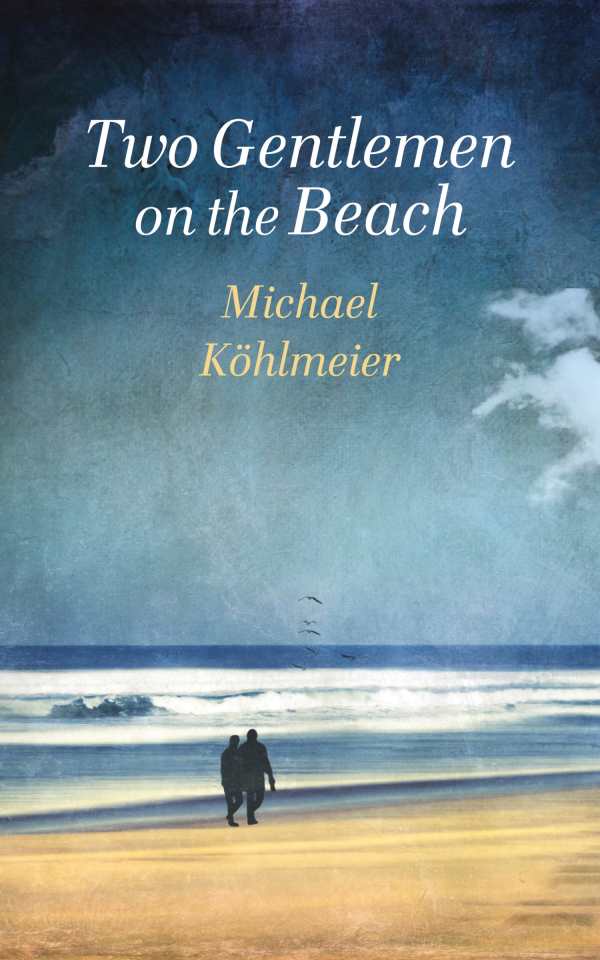Two Gentlemen on the Beach
This affecting, dimensional work centers on the power gained by losing oneself in the mythology of others.
Charlie Chaplin and Winston Churchill: Englishmen, twentieth-century icons, and, in Austrian writer Michael Köhlmeier’s rich imagination, allies joined across continents by their suicidal ideas. From this original premise comes Two Gentleman on the Beach, a novel translated by Ruth Martin that threads encounters between the film artist and the statesman together as they attempt to pull each other out of darkness.
Conversations on childhood memories lay the groundwork for their macabre kinship, while portraits of Hollywood splice with politics, biographical details, and pure invention. A nameless narrator—who is a clown by profession—bases the account on correspondence between his father and a member of Churchill’s inner circle, an interview between Chaplin and a journalist, and other fictional sources. The result is a measured drama that sets the story of the reviled, revered men against the narrator’s archival search for meaning.
Highlights include Chaplin’s near-manic state while cutting his film The Circus. As the actor studies himself, the fear of being consumed by the role of the Tramp builds with grim intensity, and the scene is brilliant in the way that it captures the pain of perfectionism. Later events, set during the rise of Hitler, turn increasingly absurd as Chaplin’s work on his satire The Great Dictator moves alongside Churchill’s own private war. The mixture of psychological fragility, truth, cinematic history, and subterfuge is as intriguing as it is unrelenting.
While the pairing of Chaplin and Churchill is fascinating enough as an exploration of the divide between public and private personae, it’s the narrator who intrigues most. A man who plays his cards close to his chest, and who absents himself for long stretches only to later return, his voice creates tension. It’s never entirely clear how much of the narrator’s retelling is a form of distraction and self-preservation—perhaps a way to identify with Chaplin’s artistry, and with Churchill’s despair—and how much is an act of homage, but the enigmatic approach is befitting of the men who inspire it. Two Gentleman on the Beach is an affecting, dimensional work on the power gained by losing oneself in the mythology of others.
Reviewed by
Karen Rigby
Disclosure: This article is not an endorsement, but a review. The publisher of this book provided free copies of the book to have their book reviewed by a professional reviewer. No fee was paid by the publisher for this review. Foreword Reviews only recommends books that we love. Foreword Magazine, Inc. is disclosing this in accordance with the Federal Trade Commission’s 16 CFR, Part 255.

